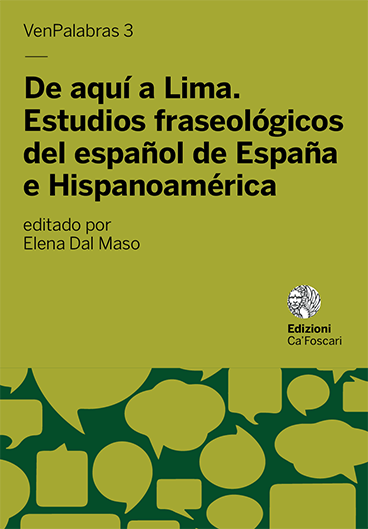- search 556 views
- file_download 150 download
- keyboard_capslock metadata
-
mark_email_readIscriviti alla newsletter
¿Nacer de pie o haber nacido de pie? La lematización de las locuciones verbales con el infinitivo compuesto
abstract
Verbal idioms are usually lemmatized in dictionaries with their infinitive form (eg., nacer de pie). However, some of them are eventually registered with their perfect infinitive form (eg., haber nacido de pie), conveying the idea that they are preferably used with compound or past tenses. Our hypothesis is that not all idioms of this type are actually used in the same way. To prove it, thirty idioms, lemmatized once at least by the perfect infinitive, have been extracted from five different European Spanish phraseological dictionaries. The information collected is compared with the data obtained from a web text corpus. The main results are: firstly, the chosen lemma sign does not always correspond to the actual use of several idioms; secondly, there are clear differences among dictionaries regarding the treatment that they give to this kind of idioms; thirdly, it seems not to be a common pattern even within the same dictionary; finally, the information provided by a lemma sign sometimes does not fit properly with the definition and/or the example.
Keywords: Perfect infinitive • Verbal idioms • Lemmatization • Inflectional fixation • Phraseography




